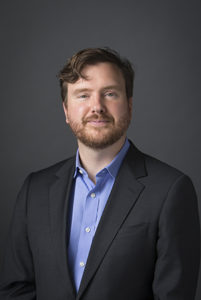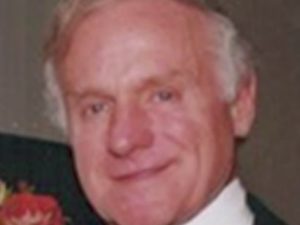Free Speech Advocate On The State Of College Campuses

Greg Lukianoff. Image: https://d28htnjz2elwuj.cloudfront.net/wp-content/uploads/2013/06/Greg-Lukianoff-Staff-Photo-2014.jpg
Greg Lukianoff heads the Foundation for Individual Rights in Education, which advocates free speech. He tells Steve Inskeep that freedom of speech on college campuses has been attacked recently.
STEVE INSKEEP, HOST:
We are in the middle of college graduation season, which is a season of high-profile commencement speeches. In 2017, some of the speeches are about speech, how we debate one another. On Friday, for example, former presidential candidate Hillary Clinton told Wellesley College, her alma mater – the graduates there – that it’s too easy to avoid hearing anyone who disagrees with us.
(SOUNDBITE OF ARCHIVED RECORDING)
HILLARY CLINTON: We can shut out contrary voices, avoid ever questioning our basic assumptions. Extreme views are given powerful microphones. Leaders willing to exploit fear and skepticism have tools at their disposal that were unimaginable when I graduated.
INSKEEP: Some of the shutting out of contrary voices happens on campus. This year, planned speeches have been shut down from Berkeley, Calif., to Vermont. Many of those kept from speaking were politically conservative. But it all bothers a man who identifies as liberal, Greg Lukianoff. He’s a First Amendment lawyer and the head of an organization called Foundation for Individual Rights in Education, which advocates for free speech on campus.
How common is it that a speaker who’s controversial or perceived as controversial is thrown off a campus or threatened with being thrown off the campus?
GREG LUKIANOFF: Overall – not that common. But it’s amazing that it happens at all, given that, particularly when it comes to commencement speakers, over the years, universities have become a lot more small-C conservative about who they invite. So they’re already being very careful with who they invite. So the fact that, in 2016, we saw 42 attempts to get speakers disinvited, both commencement and otherwise – we didn’t consider that a good trend. Let’s put it that way.
INSKEEP: How do people go about trying – attempting – to disinvite speakers?
LUKIANOFF: The way we distinguish is if the goal is either to get that speaker off the campus – essentially, that speaker can’t speak here – or to shout them down or, worst of all, of course, to engage in violence to prevent the speech from going on – like happened at Berkeley back in February.
INSKEEP: OK. So 42 times in one year – and there’ll be some more this year as you tally it up.
LUKIANOFF: And that was the worst year we’d seen. We have about 15 years of research on it. And we have – we actually have the largest database on disinvitation attempts because that’s really what we count because that is how we sort of take the temperature for tolerance, for listening to people you disagree with on campus.
INSKEEP: Is this reflecting the education itself – what’s happening in the classrooms?
LUKIANOFF: You know, I’m really wondering about that because, for most of my career – I’ve been working – fighting – for defending academic freedom and free speech on campus since about 2001. And for the overwhelming majority of my career, the single best constituency for free speech on campus were the students themselves. And people are sometimes kind of surprised to hear that.
And I’m like, no, no. Most of what we were fighting were administrators. It’s only around 2014 – 2013 – that we started seeing a lot of push by students for people to be disinvited, for new speech codes and new speech restrictions.
INSKEEP: Why don’t we listen to an example where there was a speaker on campus? And many people on campus disagreed with his point of view. It was the vice president of the United States, Mike Pence. He went to Notre Dame in my home state of Indiana and delivered a graduation speech. Let’s listen to a little bit of that.
(SOUNDBITE OF ARCHIVED RECORDING)
VICE PRESIDENT MIKE PENCE: While this institution has maintained an atmosphere of civility and open debate, far too many campuses across America have become characterized by speech codes, safe zones, tone policing, administration-sanctioned political correctness – all of which amounts to nothing less than suppression of the freedom of speech.
(APPLAUSE)
INSKEEP: So Vice President Pence takes this opportunity on a campus to speak up for freedom of speech. As he’s doing it, some – not all – of the graduates are standing up and walking out of the speech. And there was a Notre Dame student who tried to explain to CNN why she thought that was. Her name is Aniela Tyksinski.
(SOUNDBITE OF TV SHOW, “CNN NEWSROOM”)
ANIELA TYKSINSKI: The walkout was in response to the fact that members of our own community felt unwelcome, uncomfortable, and even unsafe with the invitation of Mike Pence. And so political discourse should be happening in other contexts at this campus, not at our commencement.
INSKEEP: OK. So let’s just walk through that incident. Mike Pence speaking up for Notre Dame but criticizing campuses in general – the students saying, many of us felt unsafe. What do you make of all that?
LUKIANOFF: Well, I definitely think what the students did was entirely appropriate. I’ve been frustrated and saddened to see, in many cases, students either refused – they tried to shut down events in some cases or shout speakers down – in the case of Charles Murray and some cases – in the case of Ray Kelly at Brown several years back.
I do get a little worried when I hear people talking about using the word unsafe to mean basically uncomfortable. I do think that leads to problems where people sort of conflate opinions with violence. And that’s something that I’ve been increasingly seeing on campus. They don’t make a major distinction between those two things.
INSKEEP: Violence increasingly doesn’t mean setting a fire at Berkeley to stop an event. Violence means saying words that people don’t want to hear.
LUKIANOFF: And that’s a very bad trend. I wrote about – I wrote a short book called “Freedom From Speech” a couple years ago. And I said, if you create a situation in which a professor – when you say you feel unsafe, they assume nine times out of 10 you mean something more like uncomfortable. That’s a very dangerous situation for people who are genuinely unsafe. Certainly, like, when I was in college, if you said you were unsafe, you’d be like, oh, my God, we have to call the police. What do we need to do? Watering down terms that are so central to people’s actual safety is dangerous.
INSKEEP: So you like that the students at Notre Dame…
LUKIANOFF: Yes.
INSKEEP: Those who protested found a way to speak themselves…
LUKIANOFF: Absolutely, yeah.
INSKEEP: …Without actually interrupting Vice President Pence. What did you make of what Vice President Pence had to say?
LUKIANOFF: You know, of course, I’m always happy when people have nice things to say about freedom of speech. I did – we did chuckle a little bit, though, at the idea that Notre Dame is great on free speech. We classify them as a red-light school, which means that they have at least one speech code on campus. Now, Notre Dame doesn’t have to promise freedom of speech because it’s a private school. But they do.
INSKEEP: How common are speech codes, as you just called them?
LUKIANOFF: So when we first started evaluating most major colleges, it was around – 75 percent of universities maintain red-light speech codes. But there have been, like, 60 lawsuits (laughter) against speech codes since 1989. So they’re now down to about 40 percent.
INSKEEP: OK.
LUKIANOFF: We are seeing some actual progress on that.
INSKEEP: They’ve been going down. Would you describe your own politics?
LUKIANOFF: Liberal atheist, as I sometimes get picked on for (laughter).
INSKEEP: OK. So you’re being literal – liberal atheist. As a liberal atheist, do your fellow liberals get a little upset when you criticize people who are criticizing conservatives or trying to stop conservatives from speaking on campus?
LUKIANOFF: It depends on who. You know, like, my oldest friends totally get it. But I will say it can be pretty exhausting to be in the middle of the culture war all the time because it is a situation where nobody assumes good intentions on the other side. They’re totally with you if it’s a speaker they like. But they totally hate you if it’s a speaker they don’t.
INSKEEP: So you’re OK even with Charles Murray, very controversial academic speaking on a campus.
LUKIANOFF: Yeah. I think that we need better practice in how to listen to people – even opinions that we despise.
INSKEEP: Greg Lukianoff, thanks very much.
LUKIANOFF: Thank you.
INSKEEP: He’s head of the Foundation for Individual Rights in Education.
Copyright © 2017 NPR. All rights reserved. Visit our website terms of use and permissions pages at www.npr.org for further information.
NPR transcripts are created on a rush deadline by Verb8tm, Inc., an NPR contractor, and produced using a proprietary transcription process developed with NPR. This text may not be in its final form and may be updated or revised in the future. Accuracy and availability may vary. The authoritative record of NPR’s programming is the audio record.
In: NPR




